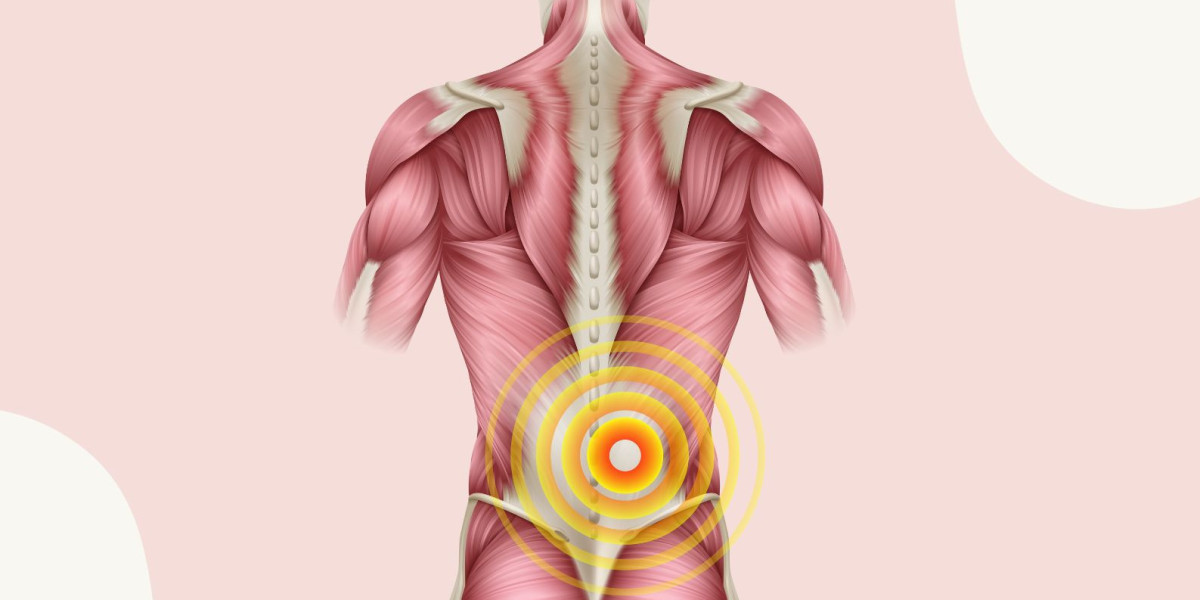Lower back injuries are common. Strains and sprains affect many people, especially those who lift, twist, or sit for long hours. These injuries often cause stiffness, soreness, and reduced movement. Knowing how to avoid and manage these problems can help keep your back strong and healthy.
Pain o Soma 350mg for Muscle Relief
Pain o Soma 350mg is used to treat muscle pain and discomfort caused by strain or sprain. Its active ingredient, Carisoprodol, is a muscle relaxant. It helps calm muscle spasms and provides relief from pain. Doctors often recommend it as part of a short-term treatment plan, along with rest and physical therapy.
Carisoprodol works by affecting the communication between nerves in the brain and spinal cord. This reduces the sensation of pain and helps the muscles relax. Pain o Soma is effective when used as prescribed.
What Are Lower Back Strains and Sprains?
A strain affects muscles or tendons. It happens when these tissues stretch or tear. A sprain involves the ligaments that support the spine. These injuries often result from overuse, heavy lifting, or sudden movements.
Common symptoms include:
Sharp or dull pain in the lower back
Stiffness and reduced motion
Muscle spasms
Swelling or tenderness
Most lower back injuries are not serious. With the right care, recovery is possible at home.
Causes of Lower Back Strains and Sprains
Lower back injuries can happen suddenly or over time. Common causes include:
Lifting heavy items incorrectly
Twisting while lifting or carrying weight
Poor posture while sitting or standing
Weak back and core muscles
Repetitive movements or overuse
Sports injuries or falls
Avoiding these triggers is the first step in preventing injury.
Tips to Prevent Lower Back Strains and Sprains
Maintain a Healthy Weight
Excess weight strains your back muscles and spine. Staying fit and maintaining a balanced weight helps reduce pressure on the lower back.
Strengthen Core Muscles
Strong core muscles support your spine. Regular exercise, including stretching, improves flexibility and balance. Focus on abdominal, pelvic, and back exercises.
Lift with Proper Technique
Use your legs when lifting heavy items. Keep your back straight and bend your knees. Hold the object close to your body. Avoid twisting while lifting.
Use Ergonomic Furniture
If you work at a desk, use a chair that supports your lower back. Sit with your feet flat on the floor. Keep your screen at eye level to avoid slouching.
Avoid Sitting for Long Periods
Take breaks every 30 minutes. Stand, stretch, or walk to reduce pressure on the spine.
Wear Supportive Shoes
Shoes with good arch support keep your spine aligned. Avoid high heels or shoes without proper cushioning.
Sleep on a Supportive Mattress
Choose a mattress that keeps your spine in a natural position. Avoid soft mattresses that sink under your body weight.
First Aid for a Strain or Sprain
If a lower back injury occurs, follow simple steps for relief.
Rest and Limit Activity
Avoid movements that worsen pain. Do not lie in bed all day. Gentle activity like walking can help healing.
Cold and Heat Therapy
Apply ice during the first 48 hours to reduce swelling. After that, use heat packs to relax tight muscles.
Over-the-Counter Medicines
Pain relievers such as ibuprofen or acetaminophen can ease discomfort. Muscle relaxants like Pain o Soma 350mg may be prescribed for short-term relief.
Gentle Stretches
Stretching improves blood flow and flexibility. Begin slow stretching once the pain starts to fade.
Physical Therapy
Therapists guide proper exercises to strengthen back muscles. They also teach posture and movement habits that reduce injury risk.
How to Use Pain o Soma 350mg Safely
Follow your doctor’s advice when using Pain o Soma. The usual dose is one tablet taken with or without food. Do not use it for more than two to three weeks.
Key Safety Tips:
Avoid alcohol while taking this medicine.
Do not drive or operate machinery.
Inform your doctor about other medicines you take.
Do not suddenly stop the medicine without medical advice.
Pain o Soma may cause drowsiness or dizziness. If you notice side effects like allergic reactions or breathing issues, seek help right away.
Exercises That Help Prevent Lower Back Injury
Regular exercise reduces the chance of strains and sprains. Safe exercises include:
Pelvic Tilts
Lie on your back with knees bent. Tighten your stomach and push your lower back into the floor. Hold for a few seconds and repeat.
Knee-to-Chest Stretch
Lie down and bring one knee toward your chest. Hold and switch legs.
Bird-Dog Exercise
Start on hands and knees. Stretch one arm and the opposite leg. Hold for a few seconds and alternate sides.
Bridges
Lie down, bend knees, and lift your hips off the floor. Hold, then lower slowly.
Wall Sits
Stand with your back against a wall. Slide down into a sitting position. Hold and return to standing.
Avoid exercises that twist or strain your back if you feel pain. Always warm up before workouts and cool down afterward.
When to See a Doctor
Most mild back injuries heal with care. However, contact your doctor if:
Pain lasts more than a few weeks
You experience numbness or weakness
Pain spreads to legs or buttocks
You have trouble controlling bladder or bowel movements
These signs may indicate a more serious problem.
Lifestyle Changes for a Healthy Back
A healthy back needs long-term care. Simple habits help keep the spine strong.
Eat a balanced diet rich in calcium and vitamin D
Avoid smoking, which weakens bones
Stay active and avoid long bed rest
Reduce stress that causes muscle tension
Summary
Lower back strains and sprains are common but preventable. Using the right lifting techniques, staying active, and maintaining posture can reduce your risk. Pain o Soma 350mg, with Carisoprodol, provides effective muscle relief when prescribed for short-term use. Follow simple care steps at home and seek help when pain lasts.






